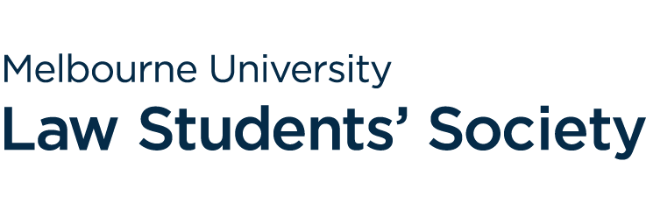Melbourne University Law Students’ Society - Summary of the Student Forum on 17 March 201622/3/2016
MULSS Volume 9, Issue 4 Last Thursday, the Melbourne Law School Faculty (Faculty) ran 2016’s first JD student form. Dean Carolyn Evans reported on the steps taken regarding law school culture in response to issues raised last year. Further issues raised by students were then discussed. Law School Culture Report The Dean highlighted steps Faculty, the University and the Melbourne University Law Students’ Society (MULSS) had taken, which included:
Issues raised by Students 1. Recording of Lectures Students commented on how the unavailability of lecture recordings can impact students with certain health issues as well as students that experience one-off emergencies. Faculty highlighted:
2. Faculty’s Channels for contacting Students Students commented on how easy it is to miss Faculty’s updates and on problems with the online ‘Melbourne JD Community’ (accessed via the LMS). Faculty commented that it aimed to keep the JD newsletter as the one channel for contact with students, in order to not overwhelm students with emails. Faculty also raised the possibility of moving updates to the LMS, rather than the Melbourne JD Community. 3. A Melbourne Law School (MLS) Food Co-op One student raised the idea of a food co-op in the renovated mezzanine level (see De Minimis Volume 9, Issue 3). Faculty highlighted that:
4. Indigeneity at MLS One student raised the concern of how indigenous issues are treated at MLS. He mentioned the lack of Welcome to Country at the start of semester and the treatment of certain cases, such as Mabo, in classes. The Associate Dean responded that the Reconciliation Working Group is currently working on how and where indigenous issues are recognised in the curriculum. She highlighted that this is a good time to get in touch with the Reconciliation Working Group to raise recommendations or concerns. The Group can be contacted through faculty members Lee Godden ([email protected]) and Mark McMillan ([email protected]). 5. Curriculum Review One student commented on the infrequent availability of certain smaller electives – such as Animal and Environment Law. Faculty commented that it previously ran surveys on which subjects students were most interested in. However, due to the inevitable 12-month lag in implementing survey results, many of the surveyed students had moved on by then. Faculty agreed with the importance of balancing varied law subjects. Faculty is meeting this week to discuss the electives offered, and will report back. The student also raised the possibility of combining with other universities to provide smaller subjects more frequently. Faculty raised the concern of the difference between MLS’s graduate and other universities’ undergraduate courses, and of maintaining an equivalent academic level to MLS courses. Other students highlighted how the MLS curriculum’s emphasis on exams and the course’s competitive nature encourages students to ignore non-examinable content. Students commented that experiential-based electives encouraged more academic curiosity than exam-focused compulsory units. Faculty agreed, saying it is looking at opening experiential electives up to more students. Students suggested that Faculty look at incorporating more experiential learning into compulsory units. 6. Clerkship Hysteria One student raised the concern of the ‘clerkship hysteria’ that arrives in second year. Faculty agreed and said it is looking at addressing it both in the strategy its careers department is taking and second year re-orientation talks. Related articles:Also in this week’s issue of De Minimis:
Comments are closed.
|
Archives
October 2022
|



